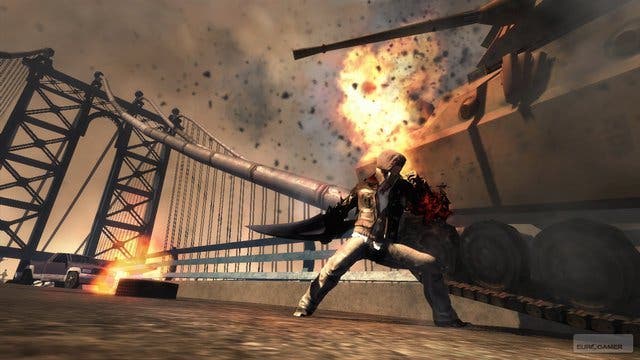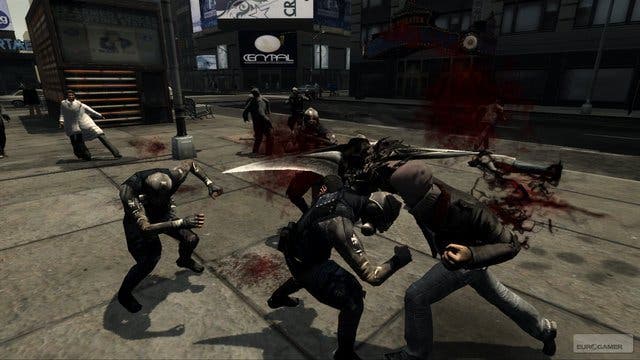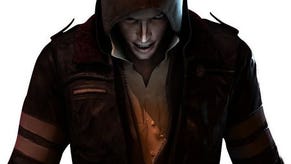Prototype
Alex through the looking glass.
It must take some nuts, showing off your brand new openworld game the week before the biggest openworld game in history launches. You know, the one that's set in a fictional version of New York, and features hundreds of optional side quests alongside a linear narrative, and revolves around a mysterious anti-hero who follows his own moral code.
Radical Entertainment's Chris Ansell has some nuts. He's presenting Prototype, an openworld game set in a fictional version of New York featuring hundreds of optional side quests, a linear narrative and a mysterious anti-hero etc. But as the demo gets underway it becomes apparent there are plenty of new ideas here, and enough key differences to suggest Prototype isn't just another GTA clone.
For starters, this version of New York has a lot more in common with the real thing than Liberty City. The different areas go by their proper names. Times Square looks like Times Square. There are no amusing parodies of familiar brands; there's a real advert for Nokia. But the biggest difference is that, unlike Liberty City, this New York is populated by enormous marauding mutants, homicidal maniacs infected by a mysterious virus, ruthless military operatives from an extra-special branch of the Special Forces and an awful lot of tanks.

In the middle of it all stands Alex Mercer. Like so many of his fellow citizens he's been infected by a virus, but this particular strain has given him special shapeshifting powers. He can "consume" other people and take on their appearance and abilities. He can turn his body into a weapon - transforming his arm into a giant claw, for example, or causing huge spikes to burst out of the ground and impale anyone standing in the wrong place. And he has parkour-style movement skills, including the ability to run up buildings, jump between skyscrapers, glide for short distances and, best of all, skid along streets using dead bodies as human surfboards.
All this might be quite a laugh if Alex wasn't being hunted down by Blackwatch, the military force established especially to deal with the effects of the virus. And if he could remember who he was, and knew where his missing sister was, and why and by whom he's been infected. To find the answers Alex must consume people, thereby gaining access to their memories.

Ansell explains that when the game starts out New York is relatively peaceful and Alex has only learned to use a few powers. Later on martial law is introduced, and by the time you're into the third act it's a three-way war between you, the military and the infected. By now Alex should racked up enough evolution points to unlock a host of special abilities. These points are awarded for attacking enemies - you get nothing for killing the innocent, though there's always the option.
"It's an incentive system. If you go after the real enemies of the game, the military and the infected, you'll get evolution points," says Ansell. "But you can be bad if you want. With this game we're trying to create an anti-hero, someone who's not black or white. It's up to the user to determine the shade of grey. This is not a morality play; it's a power fantasy."





.png?width=291&height=164&fit=crop&quality=80&format=jpg&auto=webp)



